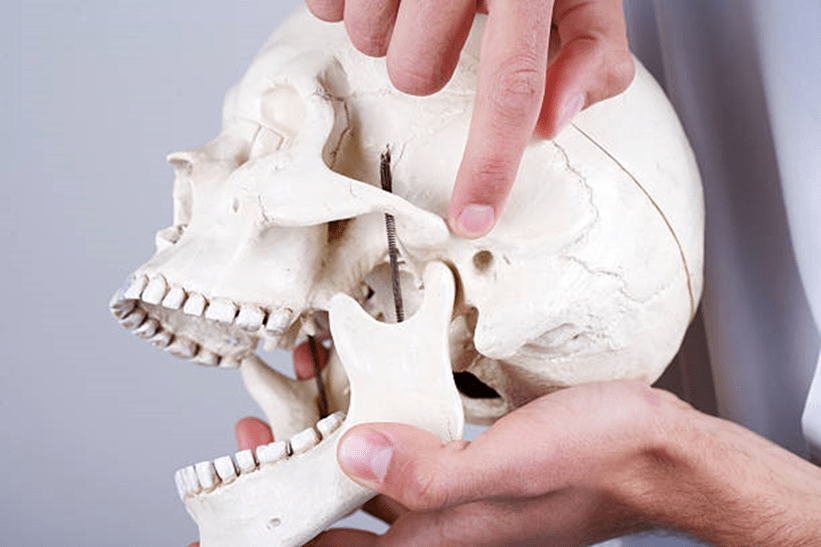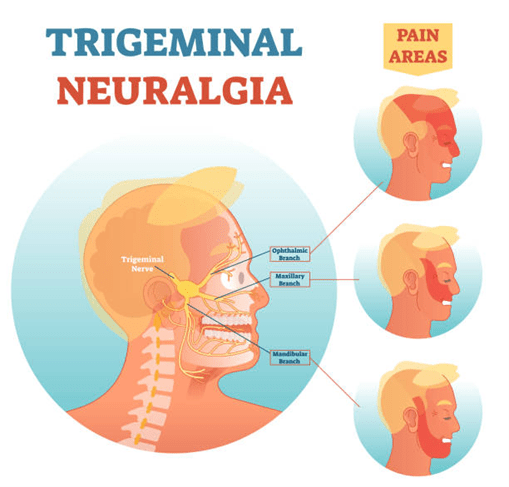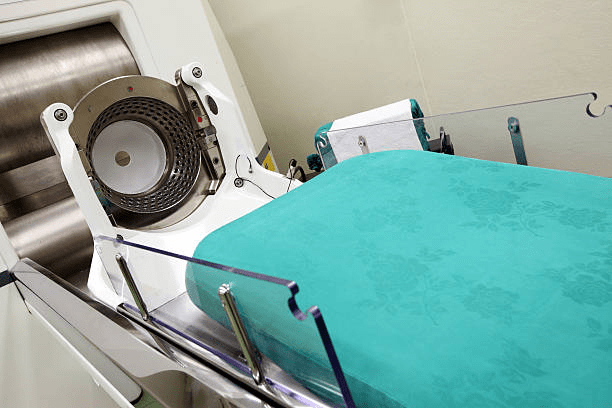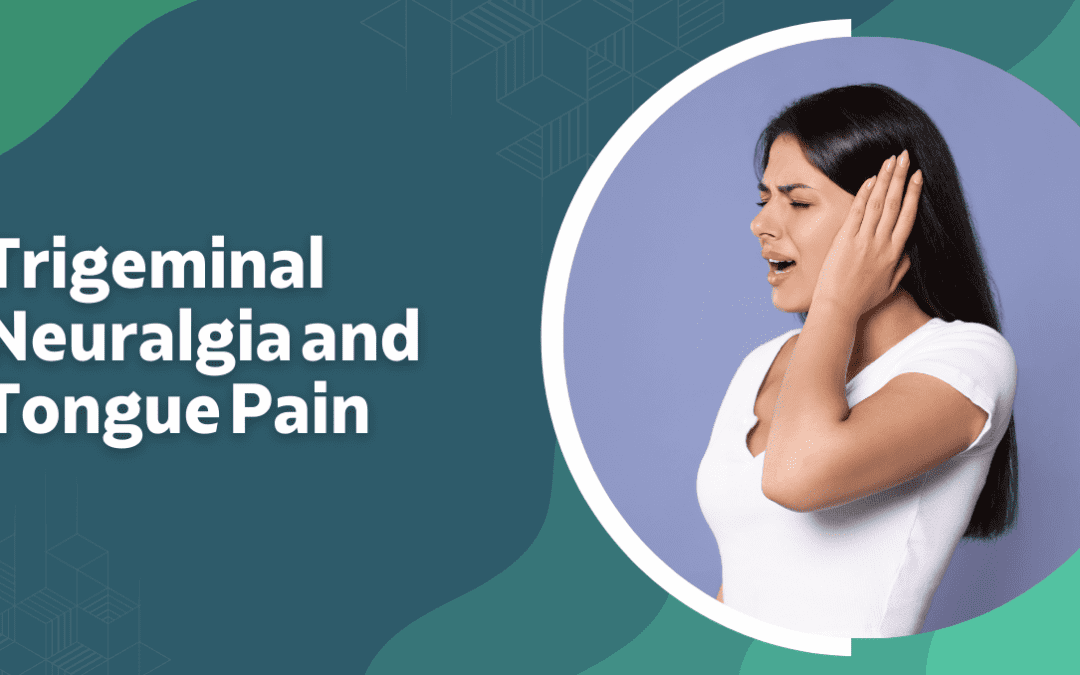Trigeminal neuralgia (TN) is a rare chronic pain disorder affecting the trigeminal nerve. Its estimated global incidence is about 4 to 13 cases per 100,000 people annually. Trigeminal neuralgia tends to be more prevalent among individuals aged 50 and above. Women have a higher incidence rate of this condition than men.
“The trigeminal nerve starts from the top of the ear,” explains Dr. Gurneet Singh Sawhney, an eminent neurosurgeon in Mumbai. “It branches into three directions- the eye, cheek, and jaw. Each side of the face has its trigeminal nerve. But, the pain associated with trigeminal neuralgia rarely affects both sides.”
Trigeminal Neuralgia can impact daily life, causing severe, stabbing facial pain. It can cause discomfort and difficulty with activities like eating and speaking. Beyond the physical discomfort, this condition can deeply affect individuals and their families. It can disrupt daily routines and diminish quality of life.
Dr. Gurneet Singh Sawhney empathizes with patients’ struggles and offers compassionate care. He provides advanced treatment options aimed at providing relief and restoring normalcy.
Take a step towards regaining control over your life. Reach out to a neurological expert for guidance and support.
Can Trigeminal Neuralgia Cause Tongue Pain?

When the trigeminal nerve is irritated or compressed, it sends abnormal signals to the brain. This results in severe pain triggered by harmless actions like:
- chewing
- speaking
- yawning
- touching the face
The trigeminal nerve is in close proximity to the tongue and its branches. So, it is possible for the pain to radiate or spread to the tongue area. This can manifest as aching, burning, or tingling sensations on the tongue.
Furthermore, the trigeminal nerve transmits sensory information from various parts of the face to the brain. Any disruption in this nerve can lead to abnormal sensations in these areas, including the tongue.
Please consult a healthcare professional for proper diagnosis and management.
Symptoms of Trigeminal Neuralgia

The common symptoms of TN include:
Excruciating facial pain:
Trigeminal Neuralgia is notorious for causing intense, stabbing, electric shock-like pain. It occurs in areas the trigeminal nerve supplies. These include the jaw, cheeks, eyes, and forehead.
Pain triggered by stimuli:
Simple actions can trigger severe bouts of pain. These include brushing teeth, talking, eating, or even a light breeze on the face.
Tongue pain:
Tongue pain can range from a dull ache to sharp, shooting sensations. TN patients can experience extreme discomfort while speaking or eating.
Unpredictable episodes:
The pain episodes can be sudden and unpredictable. It may last seconds to minutes and occur many times throughout the day.
Periods of remission:
While some individuals may experience periods of relief, the pain can return unexpectedly. This can lead to significant distress and disruption of daily activities.
Are you grappling with the agonizing symptoms of trigeminal neuralgia and tongue pain?
Connect with a qualified neurosurgeon who offers specialized care for trigeminal neuralgia.
Discover how TN patients can navigate their daily lives with resilience and grace.
Coping Strategies and Lifestyle Modifications
Some management techniques for TN are:
Regular exercise:
Engaging in physical activity can help ease stress and improve well-being. It may help reduce the frequency and severity of trigeminal neuralgia attacks.
Stress management techniques:

Stress is often a trigger for trigeminal neuralgia episodes. Relaxation techniques can help individuals to better cope with stress. These techniques include deep breathing, meditation, and yoga.
Healthy diet:

Follow a balanced diet of fruits, vegetables, whole grains, and lean proteins. It can support your health and strengthen your immunity. It can also help reduce inflammation, which can worsen trigeminal neuralgia symptoms.
Avoiding triggers:
Certain foods, drinks, or activities may aggravate trigeminal neuralgia symptoms. For example, hot soups can trigger symptoms of trigeminal neuralgia and tongue pain. Also, avoiding hard-to-chew and spicy foods may help prevent trigeminal neuralgia tongue pain. Identifying and avoiding such specific triggers can help individuals better manage their condition.
Adequate sleep:

Getting enough restful sleep is essential for health and well-being. It may help reduce the frequency and severity of trigeminal neuralgia attacks.
Support network:
Build a strong support network of friends, family, and healthcare professionals. It can provide emotional support and practical help for individuals with trigeminal neuralgia.
Alternative therapies:

Some individuals may find relief from trigeminal neuralgia symptoms through alternative therapies. These include acupuncture, biofeedback, or chiropractic care. Please check with a healthcare professional before trying any alternative treatments.
Would you like to know more about ways to cope with trigeminal neuralgia?
Consult an experienced neurosurgeon for personalized guidance and support.
Treatment Options for Trigeminal Neuralgia

Medications:
Neurosurgeons often prescribe anticonvulsant drugs to ease trigeminal neuralgia symptoms. These medications stabilize the electrical activity in the brain and reduce nerve pain.
Nerve Blocks:
In some cases, nerve block injections may provide temporary relief from trigeminal neuralgia. They deliver a local anesthetic or steroid to the nerve and interrupt pain signals.
Microvascular Decompression (MVD):
Microvascular Decompressionis a surgical procedure. The surgeon repositions or removes the blood vessels that are compressing the trigeminal nerve. By relieving pressure on the nerve, MVD can reduce pain and the risk of recurrence.
Gamma Knife:

Gamma Knife radiosurgery is a non-invasive procedure that uses stereotactic radiosurgery. It delivers focused radiation to the trigeminal nerve root. It disrupts the abnormal nerve signals without damaging surrounding tissues. It’s an alternative for patients who can’t undergo standard trigeminal neuralgia surgery.
Peripheral Nerve Stimulation (PNS):
The surgeon implants a small device near the trigeminal nerve. These specialized implants deliver electrical impulses to the nerve. The impulses interfere with pain signals, providing long-term relief for some patients.
Balloon Compression:
The surgeon inserts a tiny balloon near the trigeminal nerve. It is inflated to compress the nerve. This procedure reduces pain signals and provides trigeminal nerve relief.
Conclusion
Living with trigeminal neuralgia can be challenging, but there is hope. Coping strategies, lifestyle changes, and exploring treatment options can help people find relief.
Remember, you are not alone. There are resources available to help you navigate this condition. The first step towards a better quality of life is seeking professional help.
Do you need guidance and support on the journey towards managing trigeminal neuralgia?
Reach out to a certified neurosurgeon and explore your treatment options.
It’s time to get relief from the pain and take charge of your life!
FAQ
Can trigeminal nerve cause tongue pain?
Yes, there is a connection between trigeminal neuralgia and tongue pain. The trigeminal nerve has branches extending to various face parts, including the tongue. When it becomes irritated or compressed, it can lead to sharp, shooting tongue pain. Such severe pain can cause discomfort and difficulty speaking or swallowing.
What nerve connects to the tongue?
The main nerve connected to the tongue is the hypoglossal nerve (cranial nerve XII). This nerve controls the movement of the tongue and plays a crucial role in speech and swallowing. The cranial nerve V connects to certain tongue parts, contributing to sensory functions.
Does trigeminal neuralgia affect the mouth?
Yes, trigeminal neuralgia can affect the areas of the mouth that are supplied by the trigeminal nerve. This includes the lips, gums, teeth, and inner lining of the cheeks. Trigeminal neuralgia patients may experience intense shooting pain in these areas. Often, simple actions like talking, eating, or touching the face trigger the pain.

